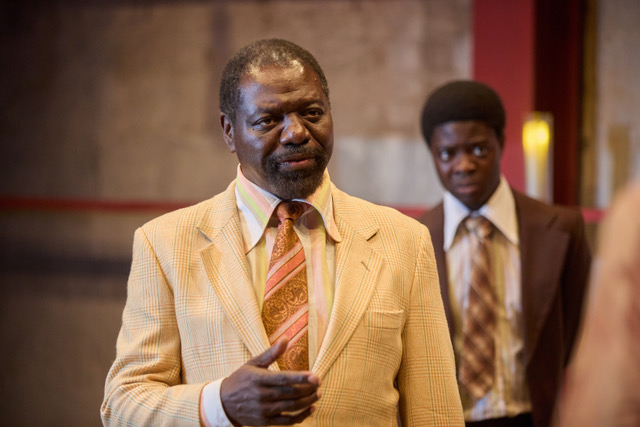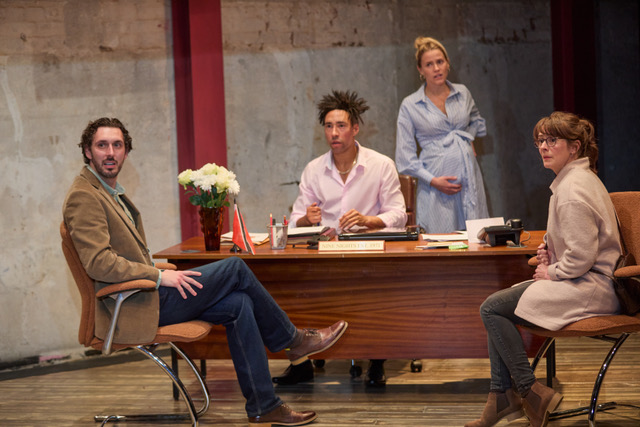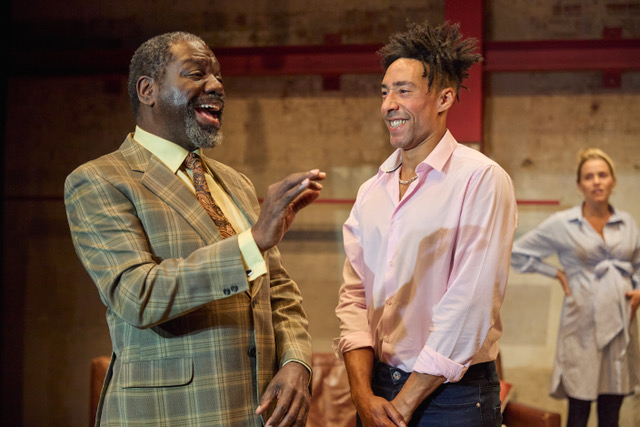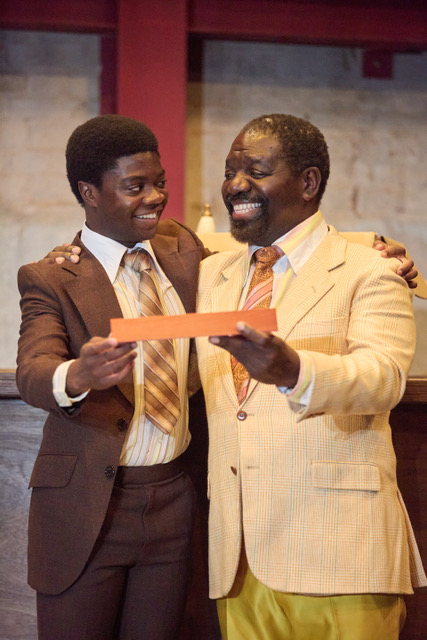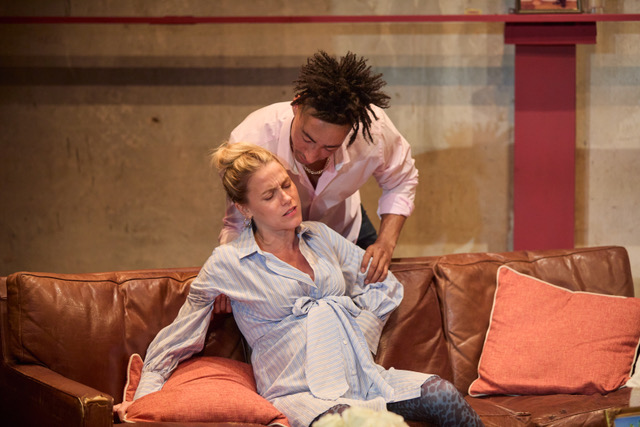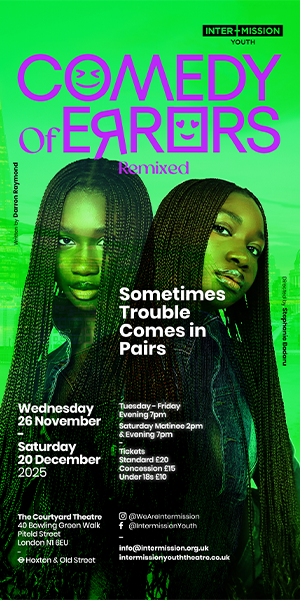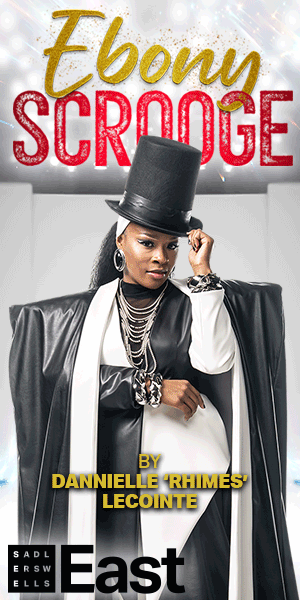Ostensibly, a play about gentrification, A Place for We is more about what we most hold onto, and the effects of not being ready to let go – even when the form or shape that ‘love’ took place in – has also gone.
As someone with Jamaican lineage – but with a mother and sibling living in Tobago – it’s good to see T&T standing out from a Jamaica-shaped shadow.
We are introduced to the location as ‘Nine Nights’, a funeral-home in Brixton that caters essentially for the families of those Trinidadian immigrants within the community, who wish to bury their departed loved ones in a manner synonymous with ‘Trini traditions’ (e.g. ‘nine nights’ of access, followed by a big party on the night prior to burial, etc.) . Clarence is the owner of the establishment, and son of its founder. He wants to uphold the old ways so that his father’s (‘Windrush’) generation might feel as if this ‘new home’ can feel like the old one.
One gets the sense that, only through accepting this foreign soil, can the recently departed Trinidadian’s spirit feel ‘at peace’; the living are then allowed to gain some for themselves. Certainly, this appears to be Clarence’s motivation, in attempting to keep his father’s memory – and that of the remainder of his father’s generation – alive.
He appears always to be at odds with his (mixed-heritage) son, Keron, with whom he shares the flat above the establishment, alongside Keron’s pregnant white, English girlfriend who shares little of his father’s misty-eyed nostalgia for a country neither were born in. Furthermore, he seems to share even less of his father’s complexion, his mother having been both English and white. A comment made by Clarence, in relation to the probable complexion of his upcoming grandchild indicates that there is an almost seething frustration (with himself?) that, if he cannot successfully share his love of all-things ‘Trini’ to his own son, he will almost certainly be unable to hold sway on matters of heritage, or impact the direction of his grandchild’s ultimate national allegiance.
There is much to commend this production – David Webber’s ultimately sympathetic, irredeemably conflicted ‘Clarence’, as well as both Joanna Horton’s and Kirsty Oswald’s double support performances.
Interestingly enough, having been brought up by Windrush immigrants of the Jamaican variety, I can testify to being told that I was ‘allowed’ to be friendly with English girls, but ‘mustn’t go marry one’. Presumably, this was – as much as anything – to preserve the integrity of the lineage / ‘races’, so perhaps Clarence, therefore, can feel himself presiding over almost the ‘end of his line(age).’
I found some of the dialogue, as well the overall ‘tone’ of the telling, to be far too broad for the subject-matter, despite creditable performances by all the actors (as well as at least 2 jaw-dropping moments of class acting).
However, the larger issue I have with the play is also one which I usually would not draw attention to in a critical manner: in trying to expand the concept of gentrification so that it’s seen clearly as a phenomena affecting more than one community, locality or race, I feel the play spreads the primary story and characters too thin.
I totally understand wishing to expand the play over a variety of contexts so that everyone can understand the ‘universality’ of the themes, but… why?
That’s not to say that there weren’t positive things to glean from the narratives about the two couples; certainly, Joanna Horton (as ‘Anna O’Driscoll) gives a breathtaking monologue when howling her heartbreak at emotionally-avoidant husband ‘George’ (Blake Harrison).
There is much to commend this production – David Webber’s ultimately sympathetic, irredeemably conflicted ‘Clarence’, as well as both Joanna Horton’s and Kirsty Oswald’s double performances.
Finally, as someone with Jamaican lineage – but with a mother and sibling living in Tobago – it’s good to see T&T standing out from a Jamaica-shaped shadow.






















